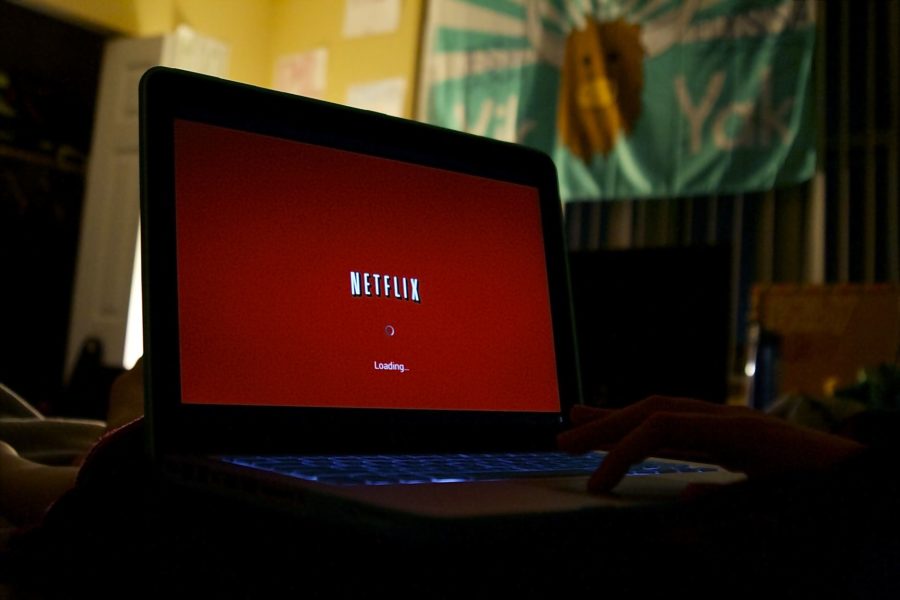Binge-watching sees rise in popularity, potential links to health issues
March 19, 2015
After a typical day of classes, Grace Dudley likes to spend her evenings curled up on the couch watching seasons of That ‘70s Show on her laptop or television.
Dudley, sophomore in Business, is a self-proclaimed “binge-watcher.” The act of binge-watching is defined as “watching multiple episodes of a television program in rapid succession,” according to Oxford Dictionaries.
Dudley said she usually watches an estimated four to six hours of television shows per day but typically watches them while performing other activities.
According to a November 2013 survey taken by Harris Interactive on behalf of Netflix, 61 percent of the nearly 1,500 people surveyed admitted to binge-watching regularly. The results showed binge-watching is particularly popular among those between the ages of 18 and 39.
Corinne Hutchinson, graduate student in LAS, also identifies as a binge-watcher. She believes streaming companies have played a large role in increasing the amount of binge-watching activity among students, mainly because of their convenience.
Get The Daily Illini in your inbox!
“I think it used to be really taboo to just sit and watch TV for long periods of time,” Hutchinson said. “But now it just stopped being taboo. Netflix has a lot to do with that.”
Researchers at the University of Texas at Austin recently performed a study that may show a link between binge-watching and depression. People who experience depression may be more likely to binge-watch, based on the study,
“The problem we run into is the age-old argument of what came first, the chicken or the egg,” said Kathleen El Koury, clinical social worker with Insight Therapy in Champaign. “Are they feeling depressed and isolated because they’re inside watching TV and playing video games all the time? Or are they inside, isolated, lonely, watching TV because they’re depressed?”
El Koury said the connection between binge-watching and depression could be explained from several different angles. The feeling could possibly stem from the self-isolation that sometimes occurs in the winter months, which is when seasonal depression is more likely to occur. Or it could be attributed to the fact that some people lose sleep as a result of binge-watching, and lack of sleep has been proven to sometimes lead to feelings of depression, El Koury said.
While Dudley said she hasn’t personally experienced any connection between binge-watching and depression, she admitted she occasionally feels tired after watching television for a long time and is sometimes less inclined to do certain activities.
“I don’t blow off big things, but sometimes I’ll blow off people,” she said. “I’ll just be like, ‘Oh, I’ll just watch TV,’ because I’m so comfortable.’”
Dudley believes the reason students are drawn to binge-watching is because it is a form of entertainment that is affordable and easy to do with friends.
“It’s one of the only things to do really, if you don’t have money and don’t want to go eat all the time,” she said. “It’s just a good way to pass the time.”
Ultimately, El Koury believes that television, like anything else, is acceptable when done in moderation.
“At this point with Netflix and DVR and everything, we all binge-watch at some point,” she said. “But if you find yourself doing it day in and day out, and it’s interrupting your other activities, that could be a sign of a problem.”







